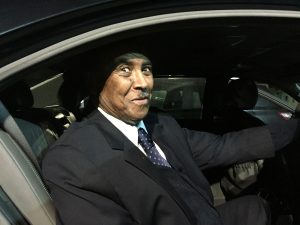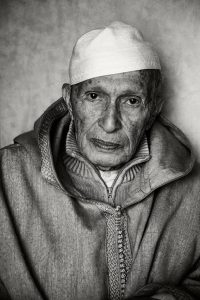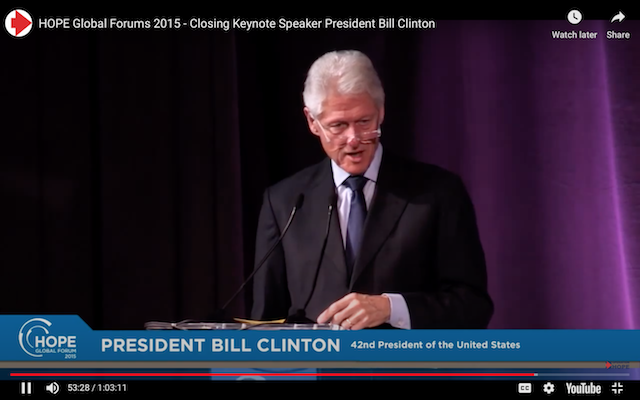
Ahmed Snoussi, Former Moroccan Minister and Ambassador to the UN, and most importantly, close confidant of King Hassan II, passed away this week. He was 92 years old. He was held in high esteem in Morocco as a key figure in the fight for independence and one of the earliest architects of the foreign ministry in the late 1950s. He was also one of the most recognizable and revered personalities in Morocco.
I was a personal witness to the love Ambassador Snoussi received throughout the country. For instance, on the many occasions during our time together in Morocco person after person would come up to him to thank him for his service to country and loyalty to the King.
Among his many friends were former US Secretary of State Madeleine Albright, Governor and former USUN Ambassador Bill Richardson and UN secretary General Kofi Annan, and many heads of state, kings, queens and African leaders. He served in several African nations, including Nigeria, Tunisia, Algeria and Mauritania. Rumor had it that at the request of King Hassan Snoussi took visiting ruler of the Congo, Patrice Lumumba, home on a royal aircraft. Lumumba found Snoussi so appealing that he was asked to stay on as his Minister of Information and adviser to the ruler, but King Hassan demanded his immediate return to Morocco.
I first met Snoussi at the Washington home of then Ambassador Mohamed Benaissa during the first of many dinners together, just before I went to Morocco as US Ambassador. The conversation immediately shifted to the question of the Western Sahara, which would become the center of our conversation for the next three years and would continue for nearly another twenty years after leaving Morocco as Ambassador. Along with my political counselor, friend and confidant Robert Holley, the four of us began a journey to examine and eventually recommend a new US policy on the Sahara.
Within a year and half of our tenure in Morocco, Bob and I were able to convince the State Department that a winner-take-all referendum on the Sahara question, as well the status quo of doing nothing, was not feasible or sustainable. Instead, a political solution proposed the formulation of international autonomy for the people of the Sahara under Moroccan sovereignty.
Ambassador Snoussi, along with Mohamed, Benaissa, who had become Minister of Foreign Affairs, were key to ensuring that the US would support and protect the new Moroccan autonomy initiative, which put the US clearly on the side of Morocco in the resolution of the Saharan issue. A new bilateral and military strategic relationship was also developed during this early reign of King Mohammed VI, an era during which Ahmed Snoussi was a key interlocutor with the US. This era was often referred to as the golden years in the US-Morocco relationship.
Snoussi developed a close and trusting working relationship with his US interlocutors, in no small part because of his appealing and endearing way of doing business. His most endearing quality was his humor. If there was ever a book written on the importance of humor in the conduct of diplomacy, it would have to be dedicated to Ahmed Snoussi. One could never get enough of Ahmed Snoussi, whether it was for a social affair or serious business. He was a consummate storyteller, a charismatic figure and humorist who would draw you in and leave you not knowing where the truth ended and the story started.
Snoussi was close to King Hassan II and King Mohammed VI in large part because he was appealing, good humored and trusted for his advice. This gave him the proximity to power and an opportunity to present his opinions, and an ability to offer tough advice. And these qualities went beyond the Monarch to others he dealt with diplomatically, during tough negotiations with the UN Security Council and in capitols around the world. It was often heard in other capitals when negotiating contentious issues with Morocco, send Snoussi!
He became an uncle to many, in the Royal court and in diplomatic circles. His advice will not be forgotten and his humor will keep us smiling whenever we think of him. Thank you Ammou (uncle in Arabic), Rest in Peace.
Jean R. AbiNader
November 24, 2020

Jean R. AbiNader, Moroccan American Center
Morocco, the Polisario, and its patron Algeria are sounding war drums over the Sahara. Is this recent skirmish a threat to regional stability or more posturing?
On October 21, groups of Polisario supporters blocked the highway at Guerguerat, in the extreme southwest of the Western Sahara. This is in the buffer zone between territory controlled by Morocco and the land claimed by the Polisario, effectively blocking transportation between Morocco, Mauritania, and countries further south. Moroccan troops responded quickly and cleared the road so that the transportation of goods could resume, with more than 100 trucks waiting to get through. The Polisario claimed no knowledge of the action and labeled Morocco’s response as an “act of war.”
What happens next could determine the fate of the 29 year-old cease-fire that marked the cessation of hostilities and the beginning of UN efforts to resolve the status of the territory that Morocco claims as part of its kingdom. While Morocco has offered broad autonomy to the region under Moroccan sovereignty, the Polisario and its sponsor Algeria are demanding a referendum that the UN Security Council dropped from its agenda in 2007 after multiple failed attempts at compiling a mutually agreed voter list stymied any credibility for that option.
Sixteen African countries, the UAE, and Jordan have opened consulates in the territory, bolstering Morocco’s sovereignty claim with international support. The strategy has been effective: out of 84 countries that previously recognized Polisario, 44 recently rescinded their support and recognition.
Morocco described the blocking of the road by Polisario supporters, allegedly backed by armed fighters, as a breach of the ceasefire. The Polisario said the Moroccan army’s entry into the buffer zone had fatally undermined the ceasefire. And so the tension builds. Behind it all are lingering questions such as why now, what is the end game, and are Algeria and the Polisario of one mind on this latest conflict?
The UN is now on alert despite the lack of a special envoy to monitor the crisis. The previous representative resigned last year due to health issues. The African Union has also indicated its concern although it has not proposed a concrete intervention. Algeria is the only Arab state to condemn Morocco’s reaction to the blockade, so the war of words continues.
For years, supporters of both sides have indicated displeasure at the lack of formal and realistic negotiations between the parties. Morocco has garnered broad international support for its autonomy proposal, which has been called serious, realistic, and credible by the US and many others. Meanwhile, the younger generation living in the Polisario camps is becoming increasingly restive at the lack of more aggressive action by the leadership to change the status quo and push for independence or something more acceptable that the present doldrums.
To some analysts, this is at the core of the current tension – actions by a small group of unhappy youths, stuck in camps, fed up with the cronyism and corruption of the leadership. The Polisario and Algeria had no option but to follow behind as neither has a better alternative, other than engaging in negotiations. The status quo has many benefits regionally and internationally. First of all, Algeria, which is in a serious domestic crisis with its own people and competing leadership cadres, see the Western Sahara issue as a distraction that can help relieve some of the dissonance with its people. However, it appears to be a less effective rallying point this time as there have been no widespread public expressions of support for the Polisario’s announced withdrawal from the cease-fire.
Similarly, the Polisario elite, who have refined their autocratic leadership and kleptomania for more than 40 years, cannot allow the dissidents to draw them into a war that they are neither prepared for nor capable of carrying out effectively. Morocco benefits from the perception that the Polisario, and by inference Algeria, are more interested in fomenting instability in a critical region where terrorism in the neighboring Sahel is of concern, rather than in engaging in a formal negotiations to resolve the conflict.
The UN, the US, and France, the major international players, would be happy with the former status quo as it relieved parties of using diplomatic leverage to move the combatants to proactively engage in peaceful steps for conflict resolution. It has become increasingly obvious that their position is, “if no crisis exists, let’s not start one that we don’t want to intervene in.” In a statement, UN secretary general António Guterres voiced his “grave concerns” surrounding the most recent developments in Western Sahara warning against “violations of the ceasefire and the serious consequences of any changes to the status quo.”
There is no simple way forward or a return to the previous status quo without Algeria facing up to its role in sponsoring the Polisario for over 40 years and enabling some kind of diplomatic movement. As the Organization for World Peace commented, “As the Polisario’s main backer, Algeria has a responsibility to prevent this situation from escalating or being manipulated by other organizations. Working with Morocco, both sides should encourage a peaceful de-escalation of the current violent rhetoric in order to prevent the conflict from reigniting.”
Similarly, Morocco should take no action beyond its setting up a military outpost in the buffer zone until the Polisario returns to the cease-fire agreement; and it should work with the UN to restart formal and comprehensive negotiations on its autonomy proposal. Algeria cannot, for its own domestic reasons, escalate military threats that destabilize the area. It should work to calm the situation so that it can more effectively mediate its own Hirak popular protest movement going on now for more than a year.
Finally, the incoming Biden Administration, quite familiar with the Western Sahara under the Obama Administration as it was a strong supporter of delaying any proactive US push to resolve the conflict, should understand the larger disaster that is possible if regional destabilization accelerates, terrorist cells expand from ungoverned spaces, and other players agitate for their own interests in the area. Not the best scenario for starting out its North Africa strategy.

Mahjoubi Aherdan. Photo: Leila Alaoui
Ambassador Edward M. Gabriel (ret.)
November 24, 2020

One of the most legendary political figures in Morocco, Mahjoubi Aherdan, has passed away at age 100. Aherdan, who was mostly called by his last name, was the co-founder of the Mouvement Populaire (MP) political party and was one of the staunchest supporters of a free and independent Morocco.
Aherdan served in many notable government positions during his lifetime. He served as governor of Rabat after Morocco’s independence, then as a minister in Morocco’s first government. He also served in several governments thereafter, as Minister of National Defense, Agriculture, and Telecommunications. He remained head of the Mouvement Populaire – one of the six major political parties in Morocco – for many decades and participated in Morocco’s political scene up until the early 2000s.
I met Aherdan for the first time when I was serving as US Ambassador to Morocco. It had been difficult scheduling an appointment with him. Thankfully we had mutual friends, Aziz and Christine Alaoui, who happened to be living in a bungalow on Aherdan’s property. I was finally invited to have dinner with Aherdan and his wife and the Alaouis, with Aziz serving as our translator.
Arriving for dinner, I marveled at the beautiful interior decorations and especially the artwork. He was a gifted painter and writer, and most of the paintings on the walls were his own. In response to my compliments, he responded that the sun would only shine more beautifully in his home when the Western Sahara dispute was settled for Morocco. Aherdan was deeply invested in the Sahara dispute, and it quickly became the focus of our conversation two minutes into our visit. It was a cause he had fought for his whole life, actually marching on the front lines during the Green March in 1975.
I promised to do my best to make substantial progress on the Western Sahara issue before I left my post in Morocco. After hearing the translation of my comment, he turned to Aziz and said in Arabic, “OK, when is he leaving!” That was the essence of Aherdan – a straight talker who was clear and direct, not weighted down by diplomatic speak.
I reached out to Aziz and Christine for this article and asked them for any personal memories they had of Aherdan. Aziz recalled Aherdan telling him about a conversation from the early days of his relationship with King Hassan. Aherdan had a disagreement with the King but caveated his disagreement with the fact that it was out of loyalty to the country. Hassan responded, “Your loyalty to your country hampers your loyalty that you should give me.” That conversation which should have drawn them apart only brought the two men closer together.
Aherdan’s admiration for the Monarch, his love of country, and his honesty in his dialogue is what made him so famous. Anyone debating Aherdan needed to be prepared for a difficult conversation. He believed no one was above him, but also believed no one was beneath him either.
Christine talked about a conversation they had with HRH Princess Lalla Aicha Alaoui bint Mohammed V, the beloved sister of Hassan II. Aziz mentioned to Lalla Aicha he was thinking of running for political office and asked for her advice. She was quick to say that Aziz should talk to Aherdan, the most respected political figure in Morocco. Such a comment could only reflect King Hassan’s respect for Aherdan as well.
My final time with Aherdan was when I accompanied him and Ambassador Ahmed Snoussi to pay our condolences to Lalla Noufissa and Lalla Zoubida at the death of their mother, Lalla Aicha. Ambassador Snoussi is close in age to Aherdan, and is the last surviving close friend and adviser of King Hassan. As we walked up the steps to Lalla Aicha’s house arm in arm and navigating the climb, everyone in the doorway turned in admiration and parted the entrance for these two old warriors to walk in. It was a tribute in itself to the love of Aherdan and his loyal generation of freedom fighters.
One final note. The photo that accompanies this article was taken by Aziz and Christine’s daughter, Leila. She had become a renowned photographer, whose life was tragically taken in a terrorist attack in Ouagadougou, Burkina Faso. She was 33. At the time, Aherdan was 95 and not in good health. That did not stop him travelling from Rabat to Marrakech to pay his condolences to Aziz and Christine. Leila was like a granddaughter to Aherdan, who loved her dearly, like his own. He was loved by young and old alike throughout Morocco.
Morocco is lucky to have had a man like Aherdan, who helped guide the country through its infancy as a new nation. Rest in peace my friend.

Former President Bill Clinton, at an address at the 2015 HOPE Global Forum in Atlanta, mentioned Morocco as a model country of religious tolerance, otherness and coexistence as shows the concord between Moroccan Jews and Muslims Photo: MAP
Ambassador Edward M. Gabriel (ret.)
August 20, 2020
 Commentators from major news outlets have commented that Morocco will be among the first Arab countries to normalize relations with Israel and exchange ambassadors following the Israeli-UAE agreement. As the former US Ambassador to Morocco and having closely followed the policies and opinions of King Mohammed VI for the past twenty years I am not so sure that Morocco will be next. There are two overriding issues to consider in this regard. King Mohammed VI has consistently and strongly supported a peace agreement between Israel and Palestine, and may see a Moroccan agreement with Israel damaging to such prospects. Also, the timing to act now, during an election year in the US, may be a deterrent for Morocco to move too hastily.
Commentators from major news outlets have commented that Morocco will be among the first Arab countries to normalize relations with Israel and exchange ambassadors following the Israeli-UAE agreement. As the former US Ambassador to Morocco and having closely followed the policies and opinions of King Mohammed VI for the past twenty years I am not so sure that Morocco will be next. There are two overriding issues to consider in this regard. King Mohammed VI has consistently and strongly supported a peace agreement between Israel and Palestine, and may see a Moroccan agreement with Israel damaging to such prospects. Also, the timing to act now, during an election year in the US, may be a deterrent for Morocco to move too hastily.
The king has made his viewpoint clear over the past twenty years with regard to Palestine and used his position as Chairman of the Al-Quds (Jerusalem) Committee of the Organization of Islamic Conference (OIC) to assert strong support for a Palestinian state. At the same time, he has expressed his support for warm and full relations with Israel and seems perfectly situated as the next peace partner with Israel, given the fact that Moroccans are the second largest ethnic group in Israel, after Russians.
Such a move however will have to be balanced with the statements that King Mohammed has constantly committed to over the years in his support for Palestine. In November of 2019, he warned that “the continuing Israeli practices in violation of international legitimacy and international humanitarian law in the occupied Palestinian territories fuel tension, violence, instability and sow the seeds of religious conflict and hatred.” Following the King’s comments, Moroccan diplomats reaffirmed Morocco’s steadfast and unwavering support for Palestine.
In February of this year, a message from King Mohammed VI conveyed to the Palestinian leader, Mahmoud Abbas, by Moroccan Foreign Minister Nasser Bourita, reaffirmed Morocco’s unwavering support to the Palestinian cause. The number of times the King has reiterated his support for Palestine during the past is too numerous to repeat here.
Since the days of King Hassan II, Moroccans have been encouraged to give to the poor in Palestine and have inspired a Moroccan population deeply supportive of a Palestinian homeland. The king would have a hefty price to pay if he went back on his word and didn’t first extract meaningful concessions for the Palestinians, before any agreement with Israel.
Remember also that the king opposed Gulf countries’ pressure on Morocco to support their sanction of Qatar and the war in Yemen. Such stands took courage for a country so dependent on economic development from the Gulf. Analysts who predict that Morocco will be next to sign a peace accord with Israel may not understand the strength of King Mohammed’s moral compass.
The other consideration of Morocco to normalize relations with Israel is timing. There’s a joke in Morocco that says, “I’m not sure who the next US president will be but I do know who the King’s best friend will be”. Morocco has always avoided partisan gestures during US election cycles dating back to the time when Sultan Mohammed III recognized the independence of the US in 1777, being the first country in the world to recognize the United States and among the first countries to sign a treaty of peace and friendship between the two nations. Every monarch since has been careful to avoid the appearance of taking sides in US politics.
Morocco understands that if it’s not early to the peace party they will have less to gain from it. The king will have to balance that notion with his moral authority and long-held beliefs and those of his citizens, to remain steadfast in support of a Palestinian state, as well as considering US election year timing.
There are obvious reasons for Morocco to move quickly towards normalization given cultural and family ties. For these and other reasons, many Morocco watchers believe that when the right concessions are made that include a serious negotiation between the parties that include a contiguous state of Palestine, based upon 1967 borders, with Jerusalem as a capital of both states -and when Morocco is not playing into election year politics – the king will move swiftly to normalize relations.
Moroccan and Israeli citizens already know through their family ties that when that day arrives their new relationship will a peaceful, warm and genuine one.
Jean R. AbiNader
July 20, 2020

Jean R. AbiNader, Moroccan American Center
Many countries are facing declining growth rates due to the pandemic and Morocco is no exception. Given lockdowns and flight restrictions implemented worldwide early on, tourism and hospitality, usually the third largest component of GDP, have suffered enormous losses and the sector almost collapsed during the first 90 days of the global response to C-19. In the latest World Bank report, “Morocco Economic Monitor,” the Bank projected the Moroccan economy to contract in the next year, the first recession since 1995 due to C-19. It noted that, “Over the past two decades, Morocco has achieved significant social and economic progress due to the large public investments, structural reforms, along with measures to ensure macroeconomic stability.”
Indeed, the World Bank’s forecasts indicated that Morocco real GDP is projected to contract by 4% in 2020, which is a sharp swing from the 3.6% positive growth expected before the pandemic. Consequently, the World Bank expects Morocco’s fiscal deficit to widen to 7.5% of GDP in 2020, around 4 percent larger than expected before the Covid-19 crisis. Meanwhile, the country’s public and external debt is to rise but still remain manageable. In assessing the government’s well regarded response to the crisis, the World Bank puts emphasis on moving from mitigation to adaptation, which is “Key to ensuring a resilient, inclusive, and growing Moroccan economy.” It also pointed out that despite this year’s setbacks, the country can still “Build a more sustainable and resilient economy by developing a strategy to adapt,” similar to what it has done to address issues of climate change and environmental challenges.
When viewed in comparison to the rest of North Africa and the Middle East, let alone its sub-Saharan neighbors, Morocco is in a strong position to adapt to global changes as companies rethink supply chains and vulnerabilities in logistics. Globally, and especially in Europe and the US, corporations are rethinking their reliance on China as a key supplier and Morocco is poised to benefit, as I mentioned in a previous blog. The EU is already calling for “strategic autonomy” in sectors such as pharmaceutical by relying on more reliable and diversified supply chains. The new strategy is expected to entail tighter rules on human rights and environmental protection on imported goods, a move that experts say would boost local manufacturers, and Morocco is near the top of the list.
Guillaume Van Der Loo of the Brussels-based think tank Center for European Policy Studies was quoted recently as saying, “If you look at Morocco, there are more favorable conditions there for specific areas in particular, in relation to renewable energy and environmental related sectors. Morocco is quite a frontrunner and the EU tries to chip in on that. The idea that the European Commission has already expressed about diversifying supply chains could be beneficial for Morocco and that could accelerate negotiations on the new trade agreement.”
Being one the very few countries in the world that have free-trade deals with both the US and Europe, it is hardly surprising that Morocco has been touted by many as a gateway for Western investment on the African continent. “Morocco is very well positioned because of its proximity, because it’s part of EU’s regional trade agreements, its rules of origin are kind of integrated with those of the EU,” says Alessandro Nicita, an economist at UNCTAD.
Yet Morocco faces challenges in grabbing these opportunities including restrictive capital controls and a paucity of high-skilled workers. The country’s education system which was overhauled in the 1980s has failed to raise skill levels among the country’s youth, making them especially unsuitable for middle management roles.
Another concern has been raised by the National Competitive Council in Morocco which said that if the country was to move forward efficiently, it had to end monopolies in key sectors such as fuel distribution, telecoms, banks, insurance companies, and cement producers that created an oligopolistic situation in the country.
Oxford Business Group also released a study focusing on the success that Morocco is achieving in terms of combatting the effects of C-29. “Morocco boasts a robust and diversified industrial base, developed through years of heavy investment, which enabled the country to take actions to control the pandemic and mitigate supply chain disruptions.” The investment friendly climate and robust infrastructure, with Africa’s fastest train, will enhance the country’s attraction for manufacturers looking to relocate Asia-based production, as supply chain disruptions due to distant and vulnerable suppliers have resulted in many companies pursuing a strategy of near-shoring, the report said.
So Morocco’s future in manufacturing, agro-business, and technology may well determine the country’s capacity to recover its positive GDP growth rate as it overcomes the C-19 recession through robust marketing as a country for reliable and relatively inexpensive supply chains and a skilled workforce.





 Commentators from major news outlets
Commentators from major news outlets 